#I have been fascinated with blitz changing his name for a while now and wanted to do a little of analysis on its meaning
Explore tagged Tumblr posts
Text
What’s in a name?
I have compiled a screenshot of all of Blitz’s name credits at the end of every episode he’s in.
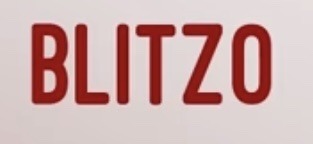
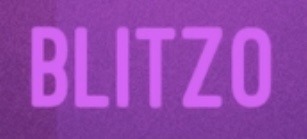
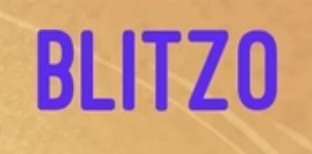

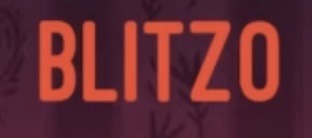
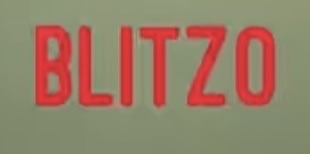
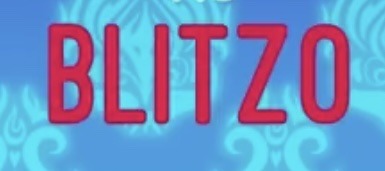

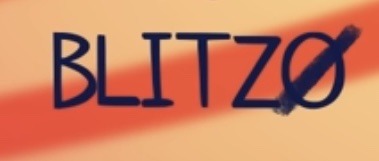
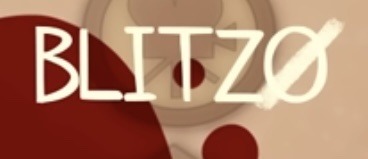
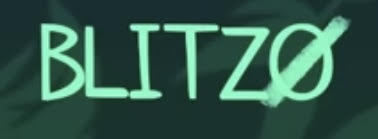

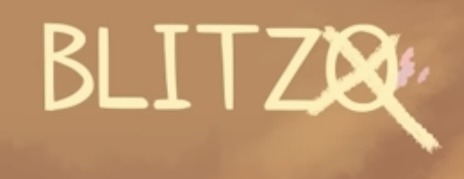







There is a change at the end of season 1 episode 8 (Queen Bee) where we get a single line through the O in his name. In this episode we get Blitz dealing with the aftermath of seeing Fizzarolli for the first time in 15 years.
Seeing Fizz after that many years has probably brought up quite a bit of emotional pain (his response upon seeing him at Ozzie's was to hide behind his menu and say "not him") for Blitz who we know cares very deeply for Fizz. At no point during Fizz's public humiliation of him during the episode Ozzie's does Blitz react or say anything in retaliation. He doesn't fight back. He still cares what Fizz thinks about him and having his once best friend treat him like that must have been quite a punch to the heart. Blitz accepts it all as it reinforces his own narrative that he is not deserving of the love of the people whose lives he ruined. All the emotional turmoil comes to a head at the end of episode 8 when he remarks how Fizz was right and he is going to die alone, coming to the conclusion that he and Fizz will never reconcile their relationship because Blitz believes he cannot be forgiven; that the damage he caused was unforgivable.
The second change is at the end of season 2 episode 5 (Unhappy Campers) where we get a second line through the O in his name. In this episode we get to see Blitz interact with his sister Barbie for the first time in presumably a while.
The relationship between Blitz and Barbie pre-fire is not really shown a lot in cannon (yet?). We know they did some sort of solo show together so presumably they were close siblings. Blitz cares enough about her to look in on her at rehab so we know, at least from his point of view, that Barbie is still an important person in his life. In this episode we get to see that relationship from Barbie's perspective. She clearly feels a lot of animosity toward Blitz ("haven't you ruined my life enough?"). She didn't let him know she had left rehab or that she had gotten a job and is apparently doing okay for herself. Blitz is no longer a part of her life. Blitz's reaction to seeing her in this episode is so sincere and very vulnerable for him. The desperation in his voice when he tried to get her to meet up with him to talk and she threw it back in his face? Ouch. Her comments about him ruining her life and her wanting him to stop trying? Double ouch. Much like with Fizz, Blitz is left with the understanding that forgiveness from her is something that he will never get as the damage has been done
The name Blitzo is a representation of his past (notice how the only people he doesn't correct about how to say his name are Barbie and Fizz). It is from a time when he had the love and connection of those in his family. After these two episodes it's almost as if that was the final reminder to Blitz that he longer has either of them. That that version of himself is gone.
By crossing out the O to change his name to just "Blitz" in the credits it's as if to say he has closed that chapter from his past. It shows that he feels, after these interactions, that it is no longer possible to be that person from his past, to be the person that was loved and cared for by Fizz and Barbie. He is no longer worthy of having that name and everything good that is associated with it because it's his fault he lost them.
Although, with the change of his name, it could potentially be a fresh start. A chance for him to build a new version of himself. A person worthy of the two most important people in his life and by extension the other people in his life he cares about too. ("I don't want to be this way, not forever").
#helluva boss#blitz#blitzo#wow this took a while to write#I have been fascinated with blitz changing his name for a while now and wanted to do a little of analysis on its meaning#and i love how they subtly included this change in the credits at the end of the two most impactful episodes about the people from his past#didn't seem coincidental to me
160 notes
·
View notes
Text
The Monday Interview: Mark Gatiss - Top of the League
The Monday Interview: Mark Gatiss - Top of the League
Published: 19:14 Updated: 19:27 Sunday 16 November 2008
ALTHOUGH it's bad form to ogle someone else's husband, I can't help admiring Mark Gatiss's rather sexy legs. They seem to stretch to his neck, meeting a scruffy beard that adds a raffish edge to his air of sexual devilry.
This tastiness is a far cry from the grotesques he's so often portrayed, from his days as a member of The League of Gentlemen, to frizzy-haired, gap-toothed Glen Bulb of Nighty Night, and Doctor Who's maniacal Dr Lazarus.
This dishiness is very on-message, since we're here talking about his third mainstream novel, Black Butterfly, starring charismatic spy extraordinaire Lucifer Box, whose adventures in bisexuality are every bit as breathtaking as his undercover work for monarch and country. Each Box novel visits a different era, allowing Gatiss to pay homage to some of his favourite authors. The Vesuvius Club, set in the early 1900s, evoked Conan Doyle. The Devil in Amber found Box battling Nazis and Stalinists, and was Gatiss's homage to Dennis Wheatley and John Buchan. Preparing for Black Butterfly, set in 1953, heimmersedhimself in Ian Fleming and contemplated the machinations of John le Carr's spies. But for all these acknowledged influences, Lucifer Box is a spy like no other. Gatiss explains: "I am a gay man who loves James Bond films and snooker – all kinds of working-class pursuits. I didn't set out to deliberately respond to themasculinity. I'mfascinatedthat somanyspieswere or are gay,but I also like the idea, which le Carr showed, that the real job is much more prosaic." Surely a great spy would be ruthless enough to shag anything? "Yes, and also back in the day, the natural people to approach were people who were already lying about themselves.When homosexuality was illegal these people already had a different identity. What's interesting is that simultaneously to recruiting known homosexuals, they were also perceived as a security risk, precisely because of the blackmail thing.The recruiters must have known and actually relied on it, but it was always a worry." "Black Butterfly" is the French nickname for depression, but here it's also the name of a nefarious drug that imbues people with a euphoric sense of infallibility – before propelling them to grisly ends.When Box is poisoned he believes that he's young again – and behaves accordingly – until the antidote is administered by the object of his affections, a dishy CIA operative called Kingdom Kum. With a respectful nod to JaneMarple, I suggest there must be special challenges in writing about a geriatric spy. "I've never been specific, but he's obviously in his late seventies. I thought the thing to do was mention every now and then how much it hurts (to leap about], but if you keep going on about it then readers stop wanting to go on the journey. You have to believe he's still in good shape even though he's very old. "I was thinking about whether therewouldbeany sex scenes and how to handle it; itmademethink that maybe I couldgetawaywith this idea of thedrugmaking him young again. "The bit when he's on the drug was my favourite part to write. I carried a notebook around and wrote in a stream of consciousness way. I found it really liberating. I'd open my eyes on a beach – what did I see? What colour are my eyelids when closed with the sun on them? I was filming in Morocco and noticed a beetle that was like a sculpture rolling down the dunes. I was trying to create very vivid snapshots." Proving that the lines between life and art blur,whilewritingBlack Butterflyhewas sent theDoctorWhoscriptthat foundhimplaying a man in search of eternal youth. "I thought, 'Oh, there's a message here,'" he jokes. At 42, he must be increasingly aware of his ownageing? "I'vebeenhavingthose thoughts since Iwas 20! Evenwhen Iwas a childI always wanted to be older. I realised just in time that it's a mistake and to enjoy my youth while I hadit. If Imeetsomeonearound20,who's a bit like I was, I want to say, 'Get out! Have fun.' Becauseyourknees start togo,myeyes aregoing. Ithappens overnight. In the car, trying to read the A-Z, I'msuddenly like my dad!" He also says he had a youthful morbid streak: "Mymumused to say I had an old soul. As long as I can remember Iwas looking backwards. I remember my mumorganised a singalong for pensioners in about 1970, and I used to love singing the old Blitz songs." He smiles. "They are called Emos now, and before that they were Goths. They didn't have a name for it when I was one, but I was that black-wearing teenager and yes, I wore a little eyeliner. I was really into horror. On the less negative side, I was fascinated by the idea that peoplehadbeenhere beforeme. Ihave a print Julia Davis (the writer and star of Nighty Night] gave me of (my neighbourhood] around the time my house was built, in the 1760s, and it has cows on it, yet it's recognisably the same street. I love that idea of the changes." This historical bent dovetails nicely with his delight in wordplay. The Box novels are peppered with silly names, which often occur to him in the bath, a site he finds conducive to deep thinking. Thus Lucifer's sister is Pandora Box, and his Black Butterfly nemesis, Melissa ffawthawte, is affiliated with nefarious baddies A.C.R.O.N.I.M. My own favourite is the "cadre of psychoanalysts-cum-mercenaries known as the Jung Turks".
Both times we've met, Gatiss has patiently explainedthat itonly looks as thoughheworks night and day, but I'msure you'll agree his output is impressive. In addition to the novel, he recentlywrote (andappearedin) an episode of Poirot, filmed the upcoming TV programme Purves & Pekkala, written and directed by Annie Griffinandfilmedhere in Scotland,and the sitcom Clone, which stars Jonathan Pryce. He's busy writing episodes of the next full season of Doctor Who, for an as yet un-cast (or so he says) Doctor.Knowinghowmuch he coveted the role, andthat he's close friendswith all involved, I try teasing an indiscretion out of him, but Gatiss remains frustratingly closedmouthed. "I haven't a clue. I found David's announcement incredibly moving. I knew he was going, but I love the fact he did it in the interval, dressed as Hamlet, and he was accepting the award, but he had to find the moment to tell everyone. He's going at the top of his game which is always the best and themost difficult thing to do, because I know he loves it." Is there a Hamlet, a Lear, or another classic role he longs to play? Without hesitation, he says, "Oh yes, Richard II. It's a very underrated play, a fabulous part – beautiful. He was a very weak king but there's this fantastic poetry about his desire to stay on the throne despite being incredibly compromised. It has that wonderful line, 'I have wasted time and now doth time waste me.' I'd like to do that." Amidall this activity, Gatiss foundtime, last spring, to get married. He and Ian have been together for nearly a decade, so I wonder if marriage changed their relationship at all. "I feel subtly different," he says. "I don't know what it is, but it's nicer. It was a lovely, very moving day. I was most moved by the notion of our families coming together. My brother said it's the best wedding he's ever beento. Itwasamazing to think that our families were so completely at ease with the whole idea of a gay wedding. And then there was the incredible irony that it took place in Middle Temple underneath a portrait of Sir Edward Carson, the man who prosecuted Oscar Wilde. So when I did my little speech the first thing I did was flick him two fingers. 'This one's for Oscar.'"
Black Butterfly is out now from Simon &Schuster (15).Mark willbein conversation about his work on 18 November at 6:30pm at Waterstone's (Sauchiehall Street) in Glasgow, 0141 332 9105; 19 November at 7pm at Waterstone's (Union Bridge) in Aberdeen, 01224592440; 20 November at 6pm at Waterstone's (West End) in Edinburgh, 0131 226 2666. For more details, contact the stores or log on to: www.simonsays.co.uk
BACKGROUND A FEW things that might surprise you about Mark Gatiss: • The League of Gentlemen won the 1997 Perrier Award for comedy, the first sketch group to win since the awards were inaugurated in 1981. • A massive fan of the show, Gatiss started writing Doctor Who novels (four to date) when he was a penniless actor. • Growing up in County Durham, he lived opposite a psychiatric hospital, where both his parents worked and where he toiled as a gardener during his first year at college. He and Ian are the devoted 'parents' of Bunsen, a Labrador retriever. • He's starred opposite Julia Davis twice –as Glen Bulb in Nighty Night, and again as Johnnie Cradock in Fear of Fanny. • In 2003 he was the script editor for eight episodes of Little Britain. • As French poet Louis Aragon, he played opposite Ewan Bremner's Salvador Dali in Surrealissimo: The Trial of Salvador Dali. The cast list included Stephen Fry (Andre Breton), Vic Reeves (Paul Eluard) and both members of The Mighty Boosh! Read more at: https://www.scotsman.com/lifestyle/the-monday-interview-mark-gatiss-top-of-the-league-1-1147037
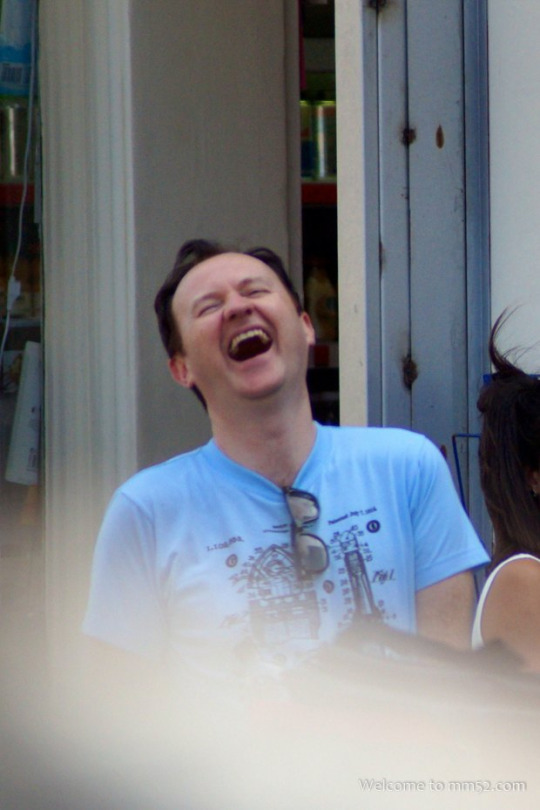
6 notes
·
View notes
Text
Aftermath: Art in the Wake of World War One
Aftermath: Art in the Wake of World War I Tate Britain Until 23rd September 2018 Currently on at the Tate Britain is Aftermath: Art in the Wake of World War One. Marking the 100 year anniversary since the end of the First World War 'Aftermath' explores the impact that this infamously great war had on British, German and French art; exploring not only the physical but the psychological scars that this time left on Europe and its artists. World War I (often abbreviated to WWI), also known as the First World War, was a global war that originated in Europe and lasted from 28th July 1914 to 11th November 1918. It was described as the 'War to End All Wars', with more than 70 million military personnel mobilised in one of the largest wars in history. Over 9 million combatants and 7 million civilians died as a result of the war; it was one of the deadliest and gruelling conflicts in history, and precipitated major political changes. One of the triggers for the war was the assassination of the Archduke Franz Ferdinand of Austria by Yugoslav nationalist Gavrilo Princip in June 1914. As a result international alliances formed over previous decades became entangled and involved in the conflict. Within weeks the major powers were at war, and soon it spread across the entire world. After the war art was used in many ways, from the building of public memorials to documenting its destructive impact both socially and on the land itself. This heartbreakingly fascinating and moving exhibition shows how artists reacted to the memories and life the war created. William Orpen's 1918 'Zonnebeke' shows a dark and gloomy scene, displaying dead bodies strewn about the place, almost like dolls tossed aside by children done playing with them. Orpen drew on his own experiences elsewhere to express the horrors and destruction of war. The scene is truly horrific, almost causing viewers to feel slight guilt as they can't help but admire the beauty in the piece that contains such awful images. The horrors of the painting are even more unimaginable when viewers are reminded that it is not a scene taken from one's imagination, but rather one that was, sadly, a very real daily view for so many people. However, amongst all the darkness and dismay, Orpen has painted a small crack in the dark black clouds, where a blue sky peeps though, offering just a glimmer of light and a symbol of hope amongst all the death and destruction. One of the most inspiring artists featured is British artist Paul Nash. Immediately after the war Nash painted 'Wire' in 1918. Showing hoards of dead trees and nature, Nash documented the sad reality that was not only human life but all life was taken as a result of the war. Every inch of the painting shows destruction of the worst kind, from charred, blackened trees with barbed wire wrapped around them symbolising mutilated bodies, to the soil that once held life, now burned, blitzed and devoid of any living thing. Nash grew up in Buckinghamshire, where he developed a love for the land. Nash found much inspiration in landscapes with elements of ancient history and the artworks he produced during WWI are some of the most iconic images of the conflict. Shortly after the start of the war Nash reluctantly enlisted as a private for home service. Nash's duties, which included guarding the Tower of London, allowed him time to continue drawing and painting. In December 1914 he married Margaret Odeh, an Oxford educated campaigner for Women's Suffrage. He then began officer training in 1916 and in 1917 was sent to the Western Front as a second lieutenant. Based at St. Eloi on the Ypres Salient Nash has a reltivley quiet time. The desruction to the land was tremendous, however Nash was overjoyed when he saw that with the arrival of Spring the landscape was starting to recover from the damage inflicted on it. In May 1917 Nash fell into a trench and broke a rib and was sent back home to London. A few days later the majority of his former unit were killed in an assault. Nash considered himself incredibly luckily to have evaded death and adopted a new outlook on life. In November 1917 Nash returned to Ypres Salient as a uniformed observer, at this point however the war in this location was three months old and Nash often found himself under shellfire. Nash was horrified to discover the that the landscape he returned to was very different to the one he had last seen in Spring. The ditches and small canals had been all but destroyed by the constant shellfire, months of incessant rain had led to flooding and miles of deep mud. Nash was outrages at this desecration of nature, believing the landscape no longer capable of supporting life or recovering. This realisation led Nash into becoming angry and disillusioned with the war. Nash's anger, although painful, was a brilliant creative stimulus which led him to produce dozens of paintings a day, working with an angered frenzy that caused him to begin taking great risks to create his art which took him to the front line trenches. Nash's 'Landscape at Iden', painted sometime after the war finished in 1929, shows a surrealist farm yard setting. A huge pile of logs to one side represents the piles of dead soldiers from the war, while the snake coiling around the fence symbolises the rod intertwined with serpents that was held by Mercury as he accompanied the dead to the underworld in classical mythology. Many paintings show the graveyards that were created almost as monuments to the dead soldiers. They show the identical graves all in rows, stretching far and wide into the hundreds of thousands. These mass graves show the mathematical perspective of the carnage and body counts that the war bought. Christopher Richard Wynne Nevinson's painfully ironically named 'Paths of Glory' shows an unflinching depiction of soldiers whose bodies have been left to rot in waste land. The title is taken from the 1750 poem by Thomas Gray, 'Elegy Written in a Country Churchyard', “...the paths of glory lead but to the grave”. This exhibition serves as a painful reminder to viewers that death didn't just happen on the front lines of war, but that it was taken home to the citizens and other that had witnessed the horrors of war and could not escape them. Such is the case with Wilhelm Lehmbruck who sculpted 'The Fallen Man' in 1915-16. The statue shows a man on all four, begging, pleading, distraught, devoid of anything but hopelessness. Lehmbruck could not recover from the horrors he had seen and experienced at war and ultimately he committed suicide. One thing each war artist had in common was the ability to show their revulsion of the war. Artists from all countries, some opposing, all showed the horrors as they truly were, there was no propaganda from any sides from any self respecting artists. Many artists also showed the dehumanising of soldiers, as they were all in the uniforms stood in rows waiting for death; each soldier just a number in the grand scheme of things, instead of a son; a father; a husband; a brother, just wanting to go home to the lives and their families. Conrad Felixmüller's 'Solidet in the Madhouse I & II' are representations of the psychological effects the war had on people. The use of sharp edges, distorted forms, and twisted, confined bodies represent the feelings anxiety and pain are a result of Felixmüller's time spent in a psychiatric hospital after he refused to join the German army after being drafted. He spent four weeks in the hospital and during this time he developed this distinctive fragmented style of art. Many people during this time took to religion, including artist Winifred Knights, whose 'The Deluge' shows citizens fleeing form a great flood in reference to the Old Testament flood. It shows people with sheer terror in their faces, as the flood is used as a metaphor for conflict and bombing. The painting exudes a dramatic sense of panic. Pablo Picasso also used religious references in his works after the war. 'Family by the Seaside' includes Christian imagery of the piet��, the dead Christ moourned over by the Virgin Mary. His painting shows a mother and child lamenting over a dead fathers body, displaying the melancholy that remained even after the war. Dorothy Brett's 1916 'War Widows' shows a group of women all dressed in black, surrounding a central woman who is pregnant. This painting is a result of the enormous death toll that affected the women of the war. Although not directly in the heart of the battles the women and children were deeply affected, suffering constant worries, pain and loss. This painting gives viewers the opportunity to reflect on the social bonds of bereaved women and how the war negatively impacted the next generation. Tucked away in corner of this exhibition is an area of colour and hope showing paintings of golden fields, and vibrant green countrysides that remain beautiful and untouched by war. These thriving areas, full of colour and bountiful life, offer a quite life away from the cities. Showing the hope and wonders to come after the war. They show the peace that so many longed for. The painted images of twisted, mangled bodies that lay in the blackened, hellish landscapes of senseless destruction do not do justice to what was experienced during the war. As viewers to these tremendous pieces of art we can not even begin to comprehend or imagine how life was during this time. These artists have given us these small, heartbreaking glimpses of life during the war, creating pieces of art that though horrifying and disturbing are beautiful in a twisted way.
3 notes
·
View notes
Text
Yuri!!! On Ice Fanfic Recs with Reviews ["W" Authors]
Note: Doing some major reformating of the YOI fanfic rec pages. The pages that include my reviews are now having the posts separated alphabetically by author (see below). I am also creating separate page(s) that allow filtering the fanfics by category. It's a work in progress, but I'm having fun with it.
This page includes my YOI fanfic recs (with reviews) for authors whose names begin with "W".
Note: For any authors whom I don't know the gender, I refer to them with they/them. If any authors wish to correct me, please do so.
AUTHORS REC PAGES: #0-9 -- A -- B -- C -- D -- E -- F -- G -- H -- I -- J -- K -- L -- M -- N -- O -- P -- Q -- R -- S -- T -- U -- V -- W -- X -- Y -- Z
------------------
Refer to this masterlist for all of my YOI fanfic recs.
------------------
whelvenwings (@whelvenwings)
You Set My Heart on Fire
Rating: Teen Words: 34.6k Status: Complete Relationship: Katsuki Yuuri/Victor Nikiforov Tags: Alternate careers AU; Painters; Soulmates AU; Anxiety ❤❤❤❤❤ Summary: Everyone has a soulmate. And everyone sees any marks on their soulmate's skin appear on their own body; it starts with the first marks, drawn on by the midwife at birth. Not everyone is lucky enough to have a soulmate who replies, but Yuuri does, and he knows that he should feel fortunate - however, when he's trying to make a living as a small-time painter, and his soulmate is the famous artist, Viktor Nikiforov... well, it seems slightly less than fortunate. Yuuri can't help but feel self-conscious. So self-conscious, in fact, that he's never even shown Viktor his face, never let Viktor hear his voice. The only way that they've spoken is through ink, writing message after message to each other on their skin - but that's all about to change. ❤❤❤❤❤ Review: This soulmate fic takes place in an alternate universe where Yuuri and Viktor are painters. They have been communicating with each other since Yuuri's birth by writing to one another on their skin. Yuuri is an extremely anxious and very sensitive in this AU, nervous to let himself be known to many people, including Viktor. Eventually, at 24, he works up the nerve to call Viktor on the phone and soon gets wrangled into a painting competition with Yuri using Viktor's body as the canvas. This is a story about Yuuri slowly becoming more confident and bold in both his relationship with Viktor and with his art. A big setback occurs which results in Yuuri withdrawing from Viktor, but gradually they work their way back and further beyond. They learn to work with each other's opposing personalities to strengthen and improve themselves and their relationship. This is a delightful fic with a really sweet ending.
------------------
witchbane (@witchsbane)
Kintsugi
Rating: Explicit Words: 114.1k Status: Work In Progress Relationship: Katsuki Yuuri/Victor Nikiforov Tags: Mafia AU; Enemies to lovers; Angst; Slow burn ❤❤❤❤❤ Summary: Yuuri Katsuki is a hitman burdened with a debt he can never repay. His target: Viktor Nikiforov, next Pakhan to one of the most dangerous families in the Russian mafia. When the two are drawn into a treacherous alliance after a mission gone wrong, the bonds of love and loyalty to family and duty begin to unravel—even as they get more tangled up in each other. ❤❤❤❤❤ Review: I'm normally not much for mafia AUs. I don't enjoy stories with main characters that are genuinely despicable, assholish, or psychotic, and I like it even less when my favorite characters are changed and portrayed that way. What works with Kitsugi is witchbane's talented, careful handling of the characters, more broken and hardened from their experiences, but still likeable and similar to their canon counterparts. Yuuri is turned into an efficient and capable killer in order to pay off a debt, but he hates what he does, feeling guilty about several of his actions, but is determined to see it through because he desires to finally go back home to his family and earn his freedom. Victor is colder and more ruthless, but does so out of loyalty and care for Yakov and others in the mafia family, and he values loyalty in others. He's an asshole to Yuuri at first, being a for-hire hitman and outsider, but comes to genuinely care for him, respecting Yuuri's desire to not be forced into sex, worrying over him when he gets injured, and trusting him with secrets. They are slowly forging a loving bond in harsh, cruel conditions, and it will be interesting to see where the story goes from there considering how much Yuuri is hiding from Victor. The story is realistic, gritty, and angsty, doesn't glorify or romanticize the lifestyle, and still maintains sympathetic characters. It makes for a fascinating fic, and I really appreciate what witchbane has done with it.
------------------
writingfromtheshadows (@lovingnikiforov)
Equivalent Exchange
Rating: Mature Words: 129.6k Status: Work In Progress Relationship: Katsuki Yuuri/Victor Nikiforov Tags: Fantasy AU; Royalty AU; Politics; Magic; Hurt/comfort ❤❤❤❤❤ Summary: Without the Katsuki line to protect and maintain the laws of magic, Great Mages have become so few and far between that many believe the age of magic is coming to an end. However, when he comes across a young man weaving tales with figures of fire, Viktor begins to wonder if magic is truly dead, or if it lives on in the body of the storyteller with warm brown eyes. ❤❤❤❤❤ Review: This fic is absolutely amazing. Hands down one of the best royalty, political thriller fanfics for YOI, with everyone being a competent badass in their own special way. Dessa takes great care at carefully developing the plot and characters, never sacrificing one for the other. The beginning of the fic sets the stage for Viktor and Yuuri's relationship, both ommitting key facts about themselves, but still able to create a connection. Viktor is a king who just wants a break from the ever-constant responsibility and to connect with someone who just sees him as Viktor. Yuuri is a mage who pretends to not be one, and becomes attached to this man who seems to have a target painted on his back. The beginning is mostly light-hearted, with hints of the trouble to come. The Nikiforovs have a powerful, magical enemy that is determined to destroy their dynasty, and Yuuri becomes the only possible person to combat these attacks. The plot is gradual to work its way in, but once it does it hits in full force, and the topics tackled are heavy - regicide, mass murders, discrimination, duty/sacrifice. The story approaches the conflicts and politics in a realistic manner - everybody has to sacrifice something for the greater good. As much as some of Viktor's advisors would like to play the part of Viktor's friend and trust his faith in Yuuri, they must remain skeptical and wary. As much as Yuuri would just like to run away and hide who he is, he is the only force powerful enough to protect Viktor and change the course of the battle. As much as Viktor would like to be more familiar around Yuuri, he must maintain a certain distance. Dessa utilizes multiple POVs so that you understand the motivations behind each of the main characters. Everyone is so well-rounded. I love it how in one chapter I can be so frustrated with the actions of one character, and in the next I'm sympathizing with their plight and reasons behind their actions. And it's not just one character, it's multiple. They all make frustrating mistakes, but they all also learn and grow from these mistakes. Their inner thoughts and interactions with one another builds the careful framework that this story thrives on. Wow, I really really really can't wait to see how this fic is resolved - this is the story I most eagerly anticipate updates for.
------------------
Wynn (@astreetcarnamedwynn)
Wynn is so great with balancing the dynamics between Yuuri, Victor, and Yuri. Normally I don't care for Yuri taking away focus from Yuuri and Victor, but I love how she weaves him into her fics. She is perhaps one of the few authors that I will gladly read Yuri's POV and interactions with Yuuri and Victor.
Sixty Impossible Things
Rating: Teen Words: 77.9k Status: Work In Progress Relationship: Katsuki Yuuri/Victor Nikiforov; (platonic friendship) Yuri+Yuuri Tags: Canon divergent; Alterate meeting after Sochi; Sassy Yuuri; Pining Victor; Anxiety; Getting to know each other; Learning to relationship ❤❤❤❤❤ Summary: Yuuri sits shellshocked at the barrage of messages. His friends and family in Hasetsu possessed a modicum of chill, as Phichit would say, at least when it came to phones and social media. This blitz... possessed no chill whatsoever. None. Yuuri thinks even Phichit would be awed. "Yuri Plisetsky and Viktor Nikiforov are messaging me the argument I think they’re having with each other about each other while likely standing right next to each other while texting me." Celestino stares at him a long moment, silent. Then he lifts a hand to his temple, closes his eyes, and sighs. ❤❤❤❤❤ Review: This is a canon divergence fic where Yuri starts contacting Yuuri soon after the Sochi Grand Prix, and things barrel out of control from there. Something that I absolutely LOVE is that Wynn focuses on Yuuri's relationships with Yuri, Viktor, Phichit, Celestino, and Minami. The way Yuuri interacts with each of them is different, and I appreciate the care and emphasis she puts on making each one important for Yuuri. Celestino is often an overlooked character, so I really appreciate her attention to him. The conversations are honest, occasionally savage, occasionally funny, and just generally sweet. I especially love how he responds to Yuri's rudeness with equal rudeness initially, which is refreshing to the normal "oh what a cute kitten." Yuri can be a real dick, and it's nice to see him called out on such dickishness. And while the interactions between the two are petty and contentious from both sides for a while, this slowly changes as the fic continues. Originally, this story was set as complete at five chapters and has since been continued, which I was so excited to see! Each chapter continues to get better, further developing the dynamics between Yuuri, Victor, and Yuri. Recent chapters have seen a break through between the three, being more honest with each other, and all the angst and stress beforehand was worth the heartwarming payoff. I love this story so much, and I'm glad that Wynn decided to continue it!
Yuri, the Vampire Slayer
Rating: Teen Words: 20.9k Status: Work In Progress Relationship: Katsuki Yuuri/Victor Nikiforov; (platonic) Yuri+Yuuri; (brothers) Victor+Yuri Tags: Buffy the Vampire Slayer AU; Vampire slayer Yuri; Vampire slayer Yuuri; Watcher Yuuri; Witch Victor; BAMF Yuuri ❤❤❤❤❤ Summary: One month after the death of his Watcher, Yakov Feltsman, sixteen-year old Yuri Plisetsky struggles to deal with the grief he feels at Yakov's death as well as the burden he bears at being a vampire slayer, particularly keeping his secret from his best friend, Otabek Altin. Yuri's brother, Viktor, struggles as well, having traded ballet and the Bolshoi for lawnmowers and suburbia following the death of their mother two years prior. Into both of their lives walks Yuuri Katsuki, a walking knot of contradictions, with his ugly tie and slicked back hair, bearing the news that he, now, is Yuri's new Watcher. ❤❤❤❤❤ Review: I was hesitant to start this story despite being a big Buffy the Vampire Slayer fan (favorite American tv series still to this day). I saw the title, wasn't too enthusiastic for a story where Yuri was the main character, and stayed away. I shouldn't have worried, because Wynn does a great job balancing the scenes between all three characters. And despite Yuri getting the title role, the Buffy mantle is shared between him and Yuuri (Yuuri is 7th season Buffy to Yuri's 1st season Buffy). Yuuri shares several of his slaying stories with Yuri, which any fan of the Buffy series will recognize (the drowning, fight with the mayor, etc). I love how much of a BAMF Yuuri is. Yuri is understandably angry with the whole situation, slowly improving with Yuuri's guidance. And Victor is desperate to protect his brother and keep their family together. It's really well done, and I hope that Wynn eventually gets back to the story.
5 notes
·
View notes
Text
Elsie Paine Part 1: Brackenbury born and bred, she reveals how times have changed but somethings remain the same

Elsie Paine has lived in Cardross Street for all of her 87 years. In this fascinating account of a life in Hammersmith, she reveals how times have changed but somethings remain the same Sitting in her living room, Elsie Paine points at the spot where she was born 87 years ago. Her accent bears a soft London lilt as she lists her many relatives who have lived in her picturesque cottage in Cardross Street; her family home for over a century. The rented house was passed on from her grandparents to her parents and then to Elsie and her late husband, who she always refers to as: ‘my Jack’. Elsie is the only surviving resident to have been born and bred on the street. Her vivid recollections of the history and all the changes in Brackenbury Village are both a fascinating and moving account of the place she calls ‘a haven in Hammersmith’.

Elsie Paine (née Barrett) was born in May 1928, the younger of two daughters to Florence, a part time cleaner, and Edward, a carpenter. ‘I have known nowhere else, and I honestly believe that I could not have been brought up anywhere better than here,’ she says laughing. ‘It’s always been home to me. ‘My nan had five boys and two girls living here; I have no idea how they all slept in a lounge this size. They’d leave the front window open so they could get in and out.’ At that time the 19th century cottage had an outside toilet and three bedrooms. ‘We didn’t have a bathroom back then,’ she recalls, adding that all three bedrooms were upstairs – the third was converted into a bathroom only seven years ago. ‘We had an outside toilet and we had a tin bath, which, once a week would be put in front of the fire in the kitchen. My mum would then fill it with water boiled on the stove, and me and my sister, Lilly, would take it in turns to wash. We were never dirty. 'It was totally different. There were no motor cars parked up, you would see the occasional horse and cart, so all the children always played out on the street.’ ‘I remember Mondays were wash days. I would come home from Brackenbury School and all the gardens out the back were full of linen hanging on washing lines.’ In stark contrast to today, back then the Street was filled with children playing in the empty road. ‘It was totally different. There were no motor cars parked up, you would see the occasional horse and cart, so all the children always played out on the street.

‘At the top of the road there was a man who used to shoe horses. Us kids would sit for hours watching him. The smell was terrific. We would all go ‘Ohh!’ whenever he produced the red hot poker from the furnace. I also remember that one neighbour secretly kept a horse in the back garden.’ Regular parties held by residents were a major part of creating the street’s unique character, as Elsie fondly remembers. ‘There was a Scottish family over the road, and the two sons would come out every New Year’s Eve with their bagpipes. Everyone would go out into the street with a drink in their hand to listen to the lads welcome in the New Year. They really made it something. ‘In the summer, a bus took mums and kids on trips to Brighton.’ ‘We also held parties at Christmas and whenever the Allied Forces in WWII won a victory against the Germans. There was also a children’s day street party. It all helped create a real sense of community. ‘In the summer, a bus would take the mums and kids on a day trip to Brighton. The men would also have their day out which always started in the pub while they waited for the bus. When it arrived they got on board and opened the windows to throw pennies out for the children. I was always out there picking up the coins! ‘There used to be a greengrocers on the road and at Christmas the owner would bring his joanna – the piano – out to the front and one of the locals would play and sing Bing Crosby tunes. It was such a great night as everyone joined in the singing and dancing.’ Of the many characters living on Cardross Street a roguish bookie called Jim was renowned for a merry dance he led the police. ‘Jim ran an illegal bookies and the local copper was always trying to catch him. Everyone would leave their front doors open so that when he was taking bets inside on the horses they could keep an eye out for the police. ‘If someone saw a copper they would shout out, “Watch it old Jim, he’s about.” Jim would shout back, “I’m on it, I’m not silly, mate.” He would then disappear through the back gardens. At one point the policeman even hid in the laundry van to try to catch him. But, he never did.’ The residents forged a sense of community through celebration as much as they did loss. ‘When an elderly resident died on the street, two old ladies would go out with a basin and a book. They would knock on your door and ask for some money to help pay for the funeral and flowers. You’d put your name in the book and throw some money in the basin. Everyone wanted to help each other out.’ In her 20’s, Elsie worked as an assistant at a clothes shop in Kensington and there met Jack Paine who was on leave from the Army. They were married at Holy Innocents Church near Ravenscourt Park. At one point the newlyweds, her sister and her husband, and her parents all lived in their house.

‘We were one big happy family although it was a tight squeeze. My only regret is that Jack and I didn’t have any children. But, I had a good marriage, a good mum and dad; that’s what counts.’ ‘People today live a very different life to the one I know. They even have their shopping delivered to their door these days! Can you believe it? Both her parents died at the home; her father passed away when Elsie was in her 20’s, leaving her mother to survive on a widow’s pension. Her mother died more than 30 years ago. Her sister, who moved to a house over the road, passed away in 2013. Elsie’s husband died 23 years ago. For someone who has lived through a world war and seen dramatic technological changes of the 20th and 21st centuries (her family listened through their wall to a neighbour who owned the street’s first radio), it is often the little things that signify the biggest changes. ‘People today live a very different life to the one I know. They even have their shopping delivered to their door these days! Can you believe it? ‘When I was a kid no one bought their home, everyone rented. I think I’m one of the few people left here who still rents. But my nan would have a fit if she knew how much I am paying now!’ Looking back on a rich and varied life in the very room where it all began, Elsie shakes her head in disbelief as she considers how homes on her street now fetch more than £1 million. ‘It doesn’t make any sense. Everyone has gone crazy. Where do people get that kind of money from?,’ she asks. ‘I used to know everybody on this street back then. Nowadays I couldn’t tell you who is living where. It’s changed so much.’ SB *In the next issue Elsie recalls the horrors of the Blitz and its dramatic impact on the people of Hammersmith. Click to read the second instalment of Elsie’s life

Thanks to Jane and Michael Anderson for arranging this interview, and Hammersmith and Fulham Local Studies and Archives. Read the full article
#BrackenburyVillage#BrackenburyLocals#ElsiePaine#Hammersmith#HammersmithHistory#HammersmithLocals#KeepThingsLocal#streetparty#WWII
0 notes
Text
Moratorium
A Yuri!!! on Ice fic
A moratorium is a delay or suspension of an activity.
You never judge a book by it's cover. You never judge a person by their personality And when Yuri moves to Russia, he sees so much of Yurio that he hadn't expected at all
Read on AO3
TW: Suicide excerpt from Crime and Punishment
The first time Yuri meets Yurio Plisetsky, he’s met with a scowl and a ferocity no one would expect from a fifteen year old. But no one should be judged based on first impressions, the same way that books should not be judged by their cover. For far more important things lie on the inside than on the outside.
The first time Yuri sees Yurio at Victor’s-no their house, he’s met with the same trademark scowl and a slamming door as he looks up from his spot on the couch. With his blonde hair wicked back in a ponytail, he looks sharper, but for some reason, something is…off. It’s the same aura he felt when Yurio kicked him on his birthday, seconds after he gave him a present.
It’s vulnerability.
“Where the fuck is Victor?” He asks, and Yuri turns back to his phone, silently contemplating how much harsher Yurio makes Victor’s name with his quick tongue.
“Hey Yurio.” He calls back, and he hears a huff of annoyance from behind him. The teenager made his way to the bookshelf, his fingers disrupting the carefully aligned books, their spines littered with Russian that Yuri can barely understand and English that he can. “He’s in the shower, I’m sure he’ll be out soon.”
Yurio selects a book from the shelf, muttering something about pigs and fucking, his agile fingers opening the book to a page before a dark look overtook his face.
He almost smiled at this new thought and turned into the street where there was the big house with the tower. At the great closed gates of the house, a little man stood with his shoulder leaning against them, wrapped in a grey soldier’s coat, with a copper Achilles helmet on his head. He cast a drowsy and indifferent glance at Svidrigaïlov. His face wore that perpetual look of peevish dejection, which is so sourly printed on all faces of Jewish race without exception. They both, Svidrigaïlov and Achilles, stared at each other for a few minutes without speaking. At last it struck Achilles as irregular for a man not drunk to be standing three steps from him, staring and not saying a word.
‘What do you want here?’ he said, without moving or changing his position.
‘Nothing, brother, good morning,’ answered Svidrigaïlov.
‘This isn’t the place.’
‘I am going to foreign parts, brother.’
‘To foreign parts?’
‘To America.’
‘America.’
Svidrigaïlov took out the revolver and cocked it. Achilles raised his eyebrows.
‘I say, this is not the place for such jokes!’
‘Why shouldn’t it be the place?’
‘Because it isn’t.’
‘Well, brother, I don���t mind that. It’s a good place. When you are asked, you just say he was going, he said, to America.’
He put the revolver to his right temple.
‘You can’t do it here, it’s not the place,’ cried Achilles, rousing himself, his eyes growing bigger and bigger.
Svidrigaïlov pulled the trigger.
“Svidrigailov pulled the trigger.” Yurio read out loud, and a silence overtakes the room. It’s as if time was frozen, focused on the next thing that could possibly happen.
“It must be terrible to die alone.” he says, his voice impossibly soft, and Yuri looks up, just in time to see the same vulnerability fill the boy’s body up, uncertainty setting itself in his bones.
“What was that Yurio?” Yuri asks, and he’s met with a sharp glare. If he didn’t know better, he would have never assumed that Yurio has composed himself in a half second.
“It’s disgusting in English.” He says with a bitter finality, dropping the book on the floor just as Victor emerges from their bedroom, his hair sparkling from the sunlight.
“Yurio!” he says, his mouth transforming into that beautiful heart shape as he walked over to hug the young skater. Yurio quickly evades his grasp, thin arms crossing as he stares at his elder.
“That’s not my name.” He points at the clock, annoyance written over his face. “You promised you’d be at the rink by seven.” Yurio says accusingly. Victor glances at the time, before shrugging.
“It’s not too late now!” he declared, glancing at the book sprawled on the ground. He gives Yurio a pointed look, but it’s too late, the messy blonde head is already half way to the door.
Victor gives him a hurried kiss before rushing out of the door, and Yuri is left with only the Yurio’s shouts as a solid goodbye.
Standing up, he moves to pick up the fallen book, and pauses as he stares at the text in front of him.
It’s Russian.
The first time Yuri sees Yurio smiling, he’s in a restaurant, nothing admirable compared to the city all around them, but he’s staring at the person across from him with a passion that Yuri recognizes every time he sees his reflection in Victor’s eyes.
In the moment, he’s high off of love, Victor’s present glittering on his finger, and he had never thought of it twice.
The first time Yuri sees Yurio filled with raw unfiltered passion is that afternoon as he stepped into the skating rink. It’s second nature for him to watch from behind the stands as Yurio begins his routine, preparing for one of the biggest days of his life.
Otabek stands off to the side of the ice, and Yuri smiles at him in acknowledgement before music is blasted in his ears.
The surprise overtakes him, and he vaguely thinks ‘This must be Victor’s idea’ before he sees Yurio. For who else could incorporate something so surprising?
Yurio is a fifteen year old, a boy of firsts, and in their relationship, Yuri sometimes forgets that he’s an artist. Not one who stands still in front of a stretched piece of paper in front of him for hours, for that would be a waste of talent.
Yurio paints in emotions, writes in his movements, and the pure, untainted talent in his bones takes Yuri’s breath away, even as the ridiculous music plays in the background. But the music is no longer ridiculous as Yurio moves; instead it wraps around him like a blanket, becoming his shield and his weapon as he leaps across the ice.
And no longer does Yuri think that this routine could possibly be Victor’s idea because he has seen Yurio perform when the ideas of others were shoved down his throat for him to swallow and spit back out in front of hundreds of people.
That looks rehearsed, that beats records.
But the Yurio in front of him harnesses something else that turns his performance heavenly, and no longer is Yurio the fairy in petite looking outfits, but he is a god, using his emotions to cut into the ice harshly, a monster who knows how to use the powers that he had been gifted with.
His skates spray ice as he veers around the edge of the ice, and the spray of frozen water behind him should seem exaggerated, but it takes the breath out of Yuri’s lungs as he watches the sweaty, golden haired god approach his other half.
A dark haired soldier takes his hand, and while Yurio is heavenly and light, Otabek is the soldier, someone dark but forceful, the perfect complement to Yurio’s performance.
A smile takes Yurio’s lips, and the two continue the routine.
The first time Yuri sees Yurio surprised is at the Grand Prix finals, and he’s seated beside Yakov and Lilia, and his mouth had fallen open as he stared at the score on the screen and the voice announced that he had broken five time champion Victor Nikiforov’s record.
At the time, Yuri had been too preoccupied with his own need to win that he had barely noticed how much it had affected Yurio.
The first time that Yuri understands Yurio’s life is that evening as the group moved to Yurio’s house, greeted by his grandpa.
When Yuri steps though the door, Victor grasping his hand, he’s met with the scent of something fried and something all too familiar.
“They make katsudon in Russia?” he asks, only to be met face to face with a man that could rival Yakov’s solidarity.
Yurio pushes between the couple’s arms, with Otabek behind them, before jumping into his grandfather’s arms. Separately, the pair are stubborn and fierce, but Yuri watches in fascination as they exchange loving glances, and soft murmurs of Russian before glancing back at their company.
“You know Victor and beka. That’s Victor’s pig fiancé.” Yurio says. After brief introductions, the group disperses among the small living space. With the door shut behind them, Yuri is surprised on how cozy the living space is. Compared to Victor’s space, this was a closet.
“We can probably look around. Yurio and his grandpa will probably chat for a while.” Victor says.
Pushing open a door, Yuri jumps back as a blitz of fur runs past him, escaping from what Yuri could only surmise as Yurio’s room. A tall bookshelf lined one of the walls, filled with textbooks and reading that Yuri would suspect was far more advanced than any 15 year old would read. His bed was propped up on its frame, close to the ceiling to accommodate the desk underneath it.
The walls were blank, except for the carefully scribbled rules and various techniques written on long sheets of paper.
“This is Yurio’s room?” Yuri asks, almost in astonishment. “I would have imagined that it was…more dramatic.”
“You haven’t opened his closet yet.” Victor laughed. “He likes keeping the space open to practice. He doesn’t stay here too often either, since Yakov and Lilia have him practicing all the time.” Victor replies comfortably. “The books are because he doesn’t have the time to go to school. It’s what makes him Russia’s best skater. He puts everything in to get the results he’s expected to get.”
“What do his parents say? Even I went to college in America while skating.”
Victor stayed silent, his confirmation the only thing Yuri needed.
“Oh.”
“His grandfather is the only family he has. That’s why everyone in the rink is so protective of him.”
With only a look at Victor’s face, Yuri understands. It explains Yakov’s rebuking personality, harsh but never threatening; Lilia’s nitpicking, making sure he had eaten, and eating with him when Yurio hadn’t; Mila and her over bursting energy, and every single other person on the Russian skating team.
It explained the reason why Yurio had wanted Victor back, not only to choreograph his performance, but for more. It explains Yurio’s anger, and the reason he had beaten Victor’s record, as if to erase him, out of his life, out of history, and the anger he had shown Yuri.
“You guys became the family he didn’t have. And I took you away from him.”
The first time Yuri had ever seen Yurio truly filled with childlike happiness was his birthday. Yuri had been missing home, had been uncertain, and his night had improved simply through the well thought efforts of a fifteen year old.
At the time, he had found it odd, but now, he knew so much more.
The first time Yuri truly understand Yurio is that night, as he stands outside in the cold.
It seems to always be cold in Russia, colder than it ever is in Japan, even in the most northern reaches. But there’s something magical about it, the way his breath transforms into a frosty cloud, and the way the snow always decorates the ground in beautiful, messy puddles.
But that is how Russia is. Cold and beautiful. But even within it, Yuri has found the most beautiful things tucked away, whether it be the flowers fighting nature, or the people forcing themselves through life, dressed in parkas and other apparel he wouldn’t see anywhere else.
And after learning so much, that’s what Yurio is.
Cold and beautiful, with his shoulder length hair and angelic movements. His words could cut the most experienced to pieces, and his actions could tear nations apart.
But that wasn’t all. He was still a teenager, one thrown roughly into the world with barely anyone to support him. But under all the pressure, he shined, emerging as the gold medalist at the Grand Prix Finals in his senior debut.
Under all that pressure, he had found his way in the world, he had found a family, and he had found someone he loved.
It was all too obvious for the ones that knew him, Yuri thought. He had been blind to not see it before. There was no other way to interpret the way Yurio marched into the rink, Otabek’s hand firmly clasping his shoulder as he evaded an attack from Mila and ignored Yakov’s rebuking.
Chuckling to himself, he turned and looked back as Victor stepped out the door as well, and met Yurio’s gaze through the door. For someone so young, he had experienced too much, but everything had sculpted him to be what the world wanted.
Yuri only hoped he could be what he wanted himself to be.
#[Asher's fics]#[Asher's figure skaters]#Yuri on ice#yoi#yuri katsuki#yuri plisetsky#yurio plisetsky#victor nikiforov#otabek altin#otabek x yurio#otayuri#victuri#victurri#victuuri#lilia baranovskaya#coach yakov#crime and punishment
1 note
·
View note